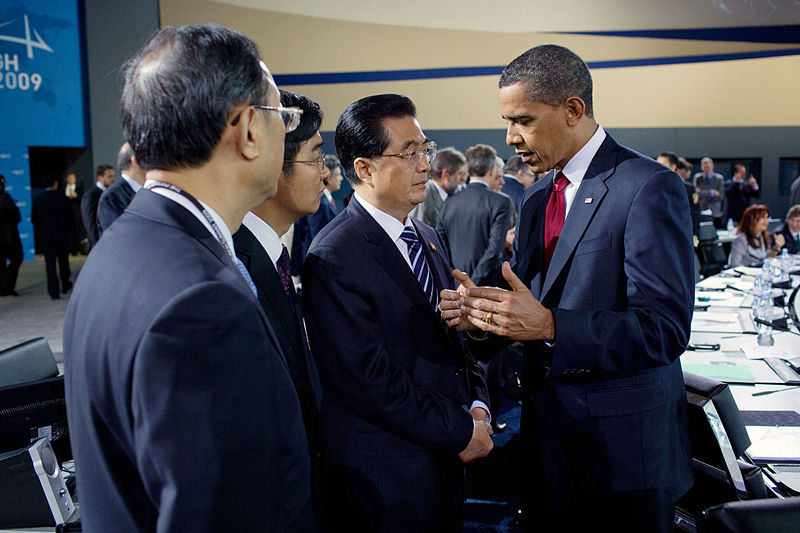Red Sky at Morning
 Since the beginning of its economic reforms in 1978, the People’s Republic of China has become our lender and our factory, our second-largest trading partner and our number one economic competitor. And much has been written on China’s potential as a geopolitical challenger to the United States, but Beijing’s aspirations to global power are, for the moment, aspirations and nothing more. The more pressing problem (the Chinese economic bubble) is much messier and more difficult to solve without significant pain—on both sides of the Pacific and around the world.
Throughout the meteoric rise of China’s economy, there have been skeptics, in both political and financial circles. Analysts argue that China is not a real threat to America’s position at the top of the economic heap; the bankers note that for every boom, there is a bust. And yet China has continued chugging along at record rates, lifting millions from poverty and defying the naysayers. However, since 2008, the cracks in the Chinese economic miracle are starting to show, which is inevitable. Rising inflation, a prodigious number of bad loans on the books of state-owned banks, falling export numbers, and the largest real estate bubble in history (sound familiar?) are painting an increasingly clear picture: China's economy is bubbling, and it is going to experience a correction, to put it mildly. How bad will it be? That’s the $6 trillion question. We don’t know, and it is possible that the Chinese government will continue its extraordinary juggling act for years to come. But don’t bet on it.
Since the beginning of its economic reforms in 1978, the People’s Republic of China has become our lender and our factory, our second-largest trading partner and our number one economic competitor. And much has been written on China’s potential as a geopolitical challenger to the United States, but Beijing’s aspirations to global power are, for the moment, aspirations and nothing more. The more pressing problem (the Chinese economic bubble) is much messier and more difficult to solve without significant pain—on both sides of the Pacific and around the world.
Throughout the meteoric rise of China’s economy, there have been skeptics, in both political and financial circles. Analysts argue that China is not a real threat to America’s position at the top of the economic heap; the bankers note that for every boom, there is a bust. And yet China has continued chugging along at record rates, lifting millions from poverty and defying the naysayers. However, since 2008, the cracks in the Chinese economic miracle are starting to show, which is inevitable. Rising inflation, a prodigious number of bad loans on the books of state-owned banks, falling export numbers, and the largest real estate bubble in history (sound familiar?) are painting an increasingly clear picture: China's economy is bubbling, and it is going to experience a correction, to put it mildly. How bad will it be? That’s the $6 trillion question. We don’t know, and it is possible that the Chinese government will continue its extraordinary juggling act for years to come. But don’t bet on it.
If the Chinese bubble pops, it will not only mean another recession, but very possibly the end of globalization as we know it. Beyond the immediate financial losses, which would be devastating, there would also be a crisis of global economic governance. No one would be left standing to act as the lender of last resort. Coming after the collapse of 2008 and the ongoing European debt debacle, this would be the last straw. There would be a desperate struggle to save the global financial system, but in the end, the only way out of this situation would be a protracted period of decoupling and deleveraging, wherein we would see a sharp decrease in international investment and a rise in inflation, as governments would print money rather than pay off their debt at punitive rates.
That's only the beginning. The long-term consequences of this nightmare scenario might prove to be the worst of all. In the event of a Chinese collapse, the globalized system, which the United States has been linked into for decades, would be in ruins. Out of this will come the realization that economic integration – whatever its benefits in good times – cannot be sustained without true international governance, at least in the economic sphere, and given that not even Europe can achieve that kind of unity, this is out of the question.
The only other path would be protectionism, either at a national level, or more likely, in the form of regionalized trade blocs (one dominated by the United States, another by Germany, and so on). This adds up to a world that is not only poorer, but also potentially more prone to international conflict, as less economic integration makes wars seem more rational. American military power would inevitably be challenged in this environment; we would no longer be seen as the guarantor of global trade, but as a potential hegemon that poses an intolerable risk to any number of smaller powers. Watch out, folks. This could get bad.
